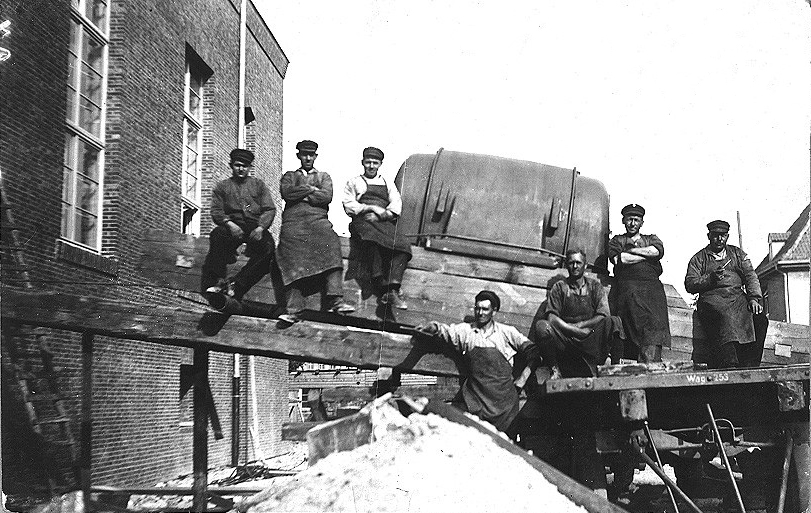In October 2022, FWN took over the entire operating business, the employees and the warehouse space of Bretzke Lagerhausgesellschaft mbH as part of an asset deal. The main business areas of Bretzke Lagerhaus, which has been based in Bremen’s GVZ since it was founded in 1990, are warehouse logistics and transportation by ship and truck.
A great (hi)story. And one that goes back more than 200 years.
If you have the time and would like to know more details of our history, please read on:
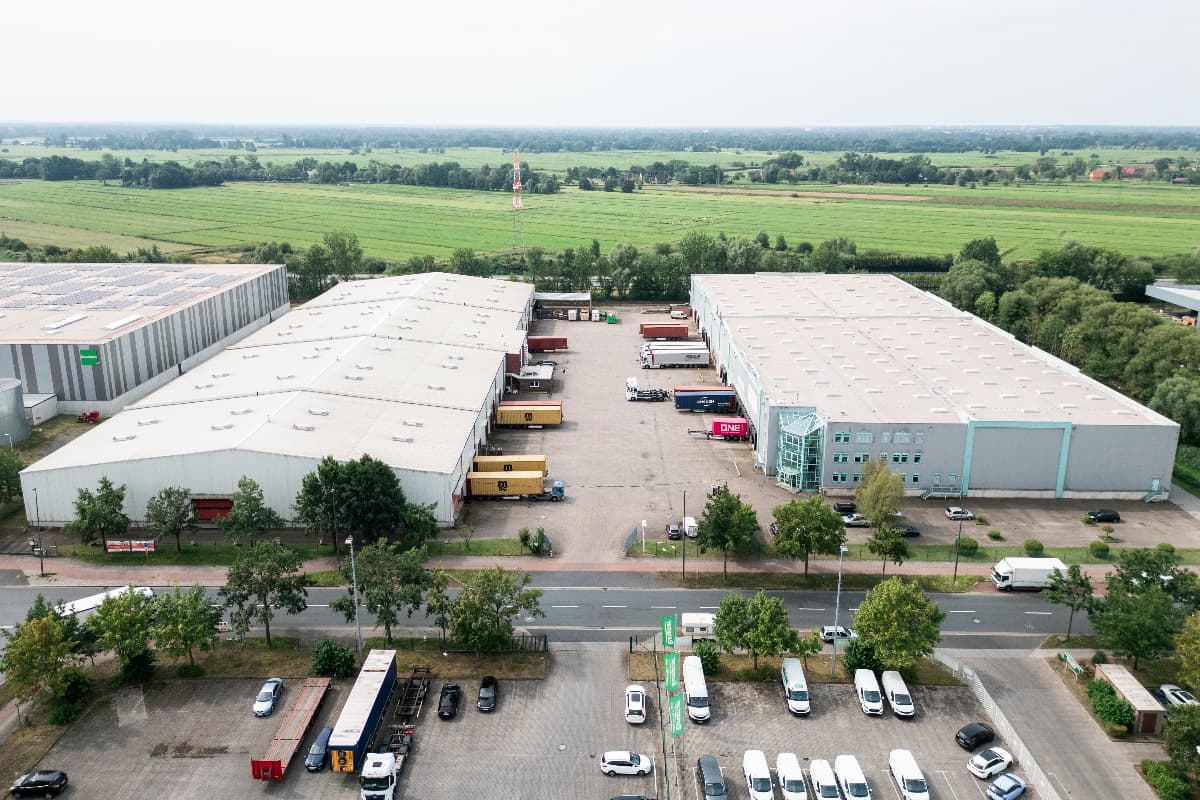
In March 2020, Warehouse 5 and the adjacent storage areas (approx. 2000 m²) at our Mahndorf location were renovated and modernised – from new floors to new windows, which ensure maximum transparency combined with optimum UV protection.
In April 2019, our vehicle shipment division opened and we recruited two employees from Interglobalshipping GmbH Bremen. This was a sensible addition to our service portfolio which enabled us to offer the transport of vehicles of all kinds, such as cars, trucks, boats and other types, to destinations all over the globe.
In February 2019, FWN became a member of “LogCoop”, a cooperation of storage and transport networks for small and medium-sized enterprises.
In autumn 2018, we decided to choose a new and innovative WMS (Warehouse Management System). The first in-house meeting to discuss further procedure was held in January 2019.
In June 2016, the logistics centre on our new premises – centrally located on the new industrial estate in Oyten right beside the A1 motorway – took the first pallet into storage.
March 2016 saw the official ground-breaking ceremony for our new logistics centre on the new industrial estate “Oyten Süd”. 21,000 m² of the total site of 44,000 m² were designated for new warehouses and office premises and 20 loading dock gates at ramp level ensured smooth operations.
In October 2015 we gave the go-ahead for yet another milestone. F.W. Neukirch had a logistics centre built in Oyten, increasing our storage capacity to hold an additional 40,000 euro pallets plus 4000 m² storage area for special goods categories.
As from January 2014, Neukirch took over the entire material logistics for a well-known industrial customer at the customer’s premises in Bremen.
In May 2013 a packing station was built to close a gap between two other buildings. The new unit was built at ramp level with 500 m² of logistics space, 4 loading gates and direct connections to Warehouses 2, 8 and 15, bundling FWN’s packaging activities at one central location.
April 2013 saw the completion of the new loading zone, an investment of around one million euros. This created a further 6 loading bays and a direct link to the neighbouring warehouse areas. The 740 m² site was now available for shipping and dispatching tasks and provided shelter from the elements during all loading processes.
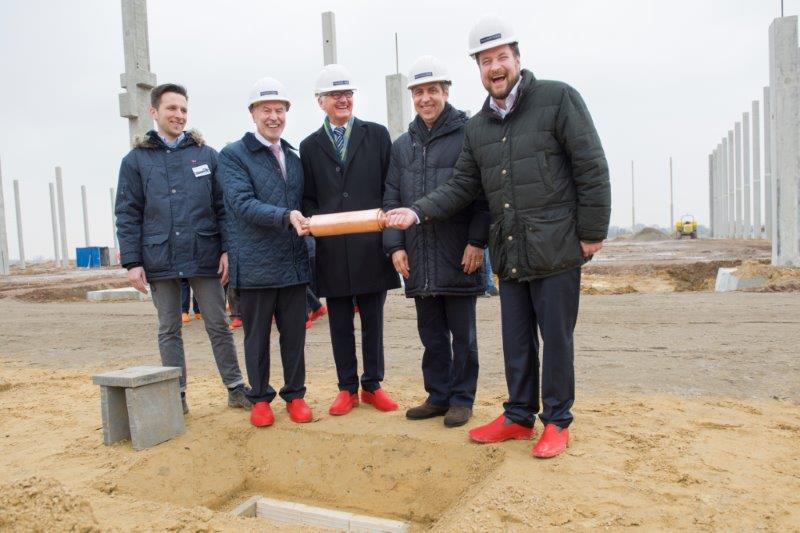
In November 2012, our Warehousing & Logistics Hub II was completed as a multi-user warehouse with an extensive staging area for inbound/outbound goods and a direct connection to the existing Warehousing & Logistics Hub I.
In July 2012, work started on the expansion of our warehousing and logistics facilities with the construction of a multi-user warehouse directly next to the existing warehouse complex. This involved investments of more than € 3.5 million and the facility was scheduled for completion in autumn 2012. Key data: storage space for 17,000 pallets, 5000 m² floor area, 1500 m² for special-offer shipments, 1000 m² for inbound/outbound goods and 15 loading bays.
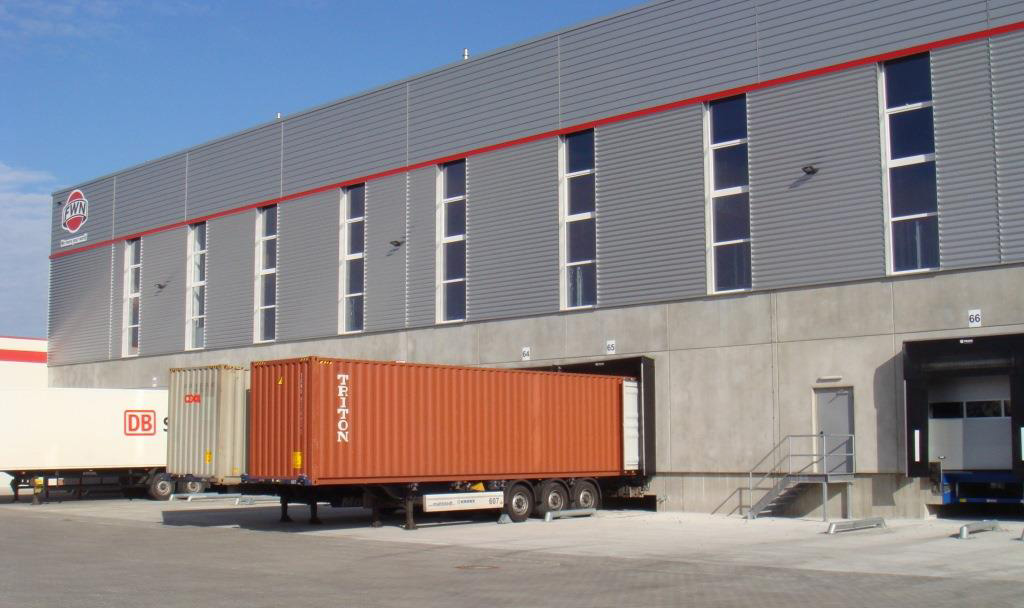
At the beginning of 2011, the new FWN high-bay warehouse (Warehouse 10) went into operation with 3600 m² of warehousing and handling area, 25 aisles, more than 7700 storage bays up to a height of 14 metres, processing 250 orders per day. The newly-finished order-picking hall ensured quick order processing, using a 2-stage order-picking system. In the new warehouse facility, FWN took over the entire logistics operations for, amongst others, an innovative provider of a full range of barbeque and garden accessories: this involved full-service delivery from the Far East directly to the consignee. The FWN warehouse facility was entrusted with management of all processes: warehousing, order picking and dispatch of products ranging from barbeques to summer houses. Along with the newly-constructed extension, FWN’s premises near Bremer Kreuz motorway intersection now included a total of 48,000 m² of multi-purpose warehousing facilities (high-bay warehouse, machine warehouse, small parts warehouse, hazardous goods warehouse etc.).
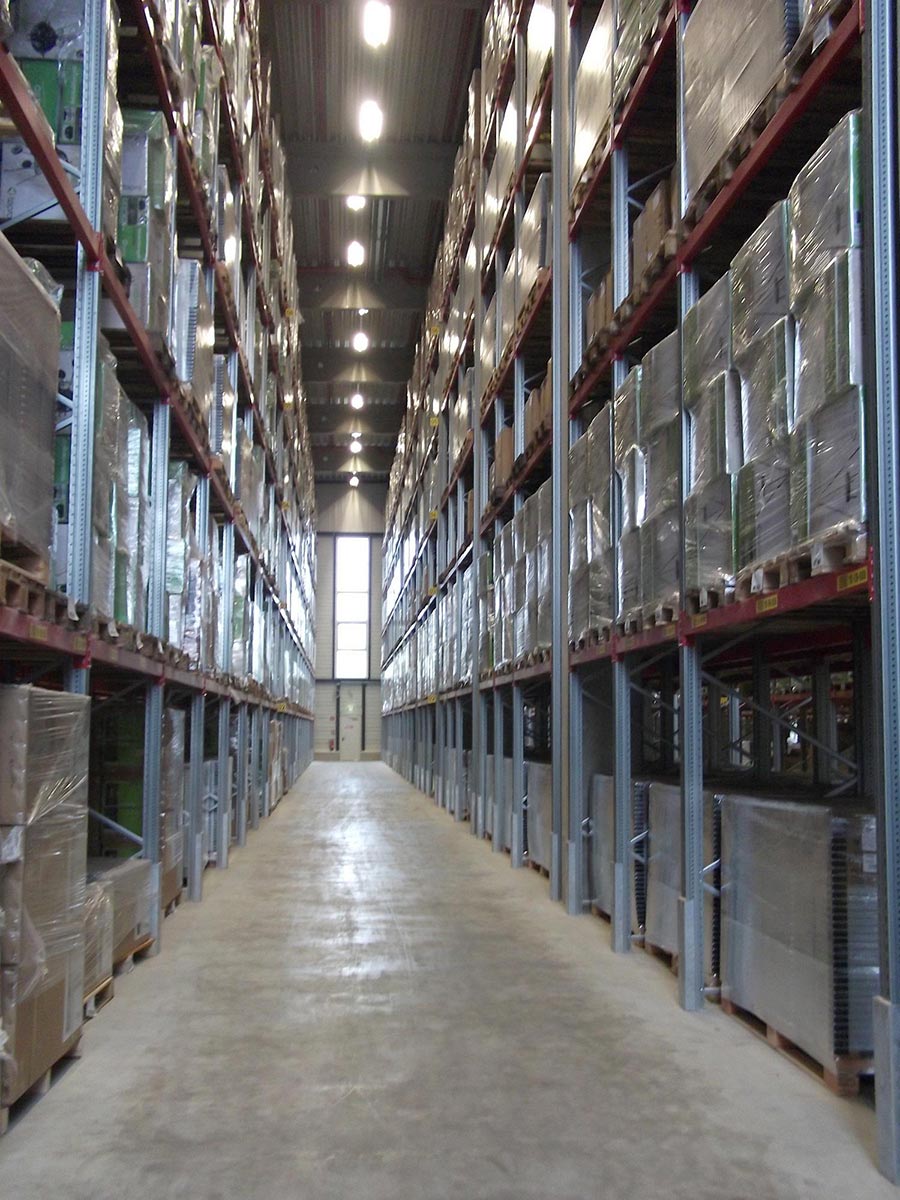
As of 1 November 2007, F.W. Neukirch (GmbH & Co) KG (FWN) took over Friederich Radermacher Spedition, a tank and liquid transport specialist from Selm in North Rhine-Westphalia, which handled national and international transports of liquid goods for the chemicals industry. This takeover strengthened FWN’s presence in the Rhine-Ruhr area and was the logical next step in FWN’s long-term strategy of becoming a service provider for niche logistic markets. Radermacher thus added another important component to our service portfolio. Sven Bley was appointed the new managing director of Radermacher, working alongside Bruno Kruth.
Also with effect from 1 July 2007, F.W. Neukirch (GmbH & Co.) KG (FWN) took over Bremer Schiffahrts- und Befrachtungskontor Märker GmbH. The core competencies of the inland vessel broker, which celebrated its 35th anniversary that year, were planning, handling and brokering of dry bulk cargo transports on European inland waterways. With the takeover, FWN aimed to offer its customers additional options and capacities for the transport of heavy and bulk cargo within the European inland waterway network and in short-sea shipping. Sven Bley, the FWN executive manager for special transports, was appointed the new managing director of Märker.
As of 1 July 2007, the European Overland Transport division was hived off into a new limited company, F.W. Neukirch Speditions GmbH, wholly-owned by Schenker Deutschland AG; this meant that FWN was now able to focus entirely on its core competencies. From then on, F.W. Neukirch (GmbH & Co.) KG could concentrate on warehousing and logistics, air and sea freight and the transport of furniture and heavy loads, as well as its haulage operations which were handled by FWN Transport GmbH.
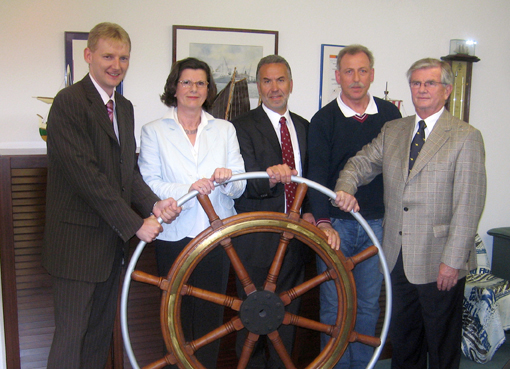
Further milestones in the company’s success story included the inauguration of our new Europa-Terminal in 2001 (a 3000-m² facility which handles up to 500 tons of consolidated cargo per day) and also of our computer-controlled high-bay warehouse with storage space for up to 20,000 pallets (2003). F.W. Neukirch also opened an office in Shanghai as a stepping stone to the high-potential Far East market.
Strategic measures and partnerships created more room for manoeuvre: in 1995, together with eight medium-sized forwarding companies, Neukirch founded “Econ Gesellschaft für Osteuropa Logistik”. This was followed in 1998 by the opening of German Parcel Depot 28.
By this time, Neukirch had also become the principal shareholder in Bremer Paket Logistik. The company has also been a shareholder in the European Elix network (European Logistix GmbH) since 2000 and Bremen-based system partner of the 24plus logistics network since 2002.
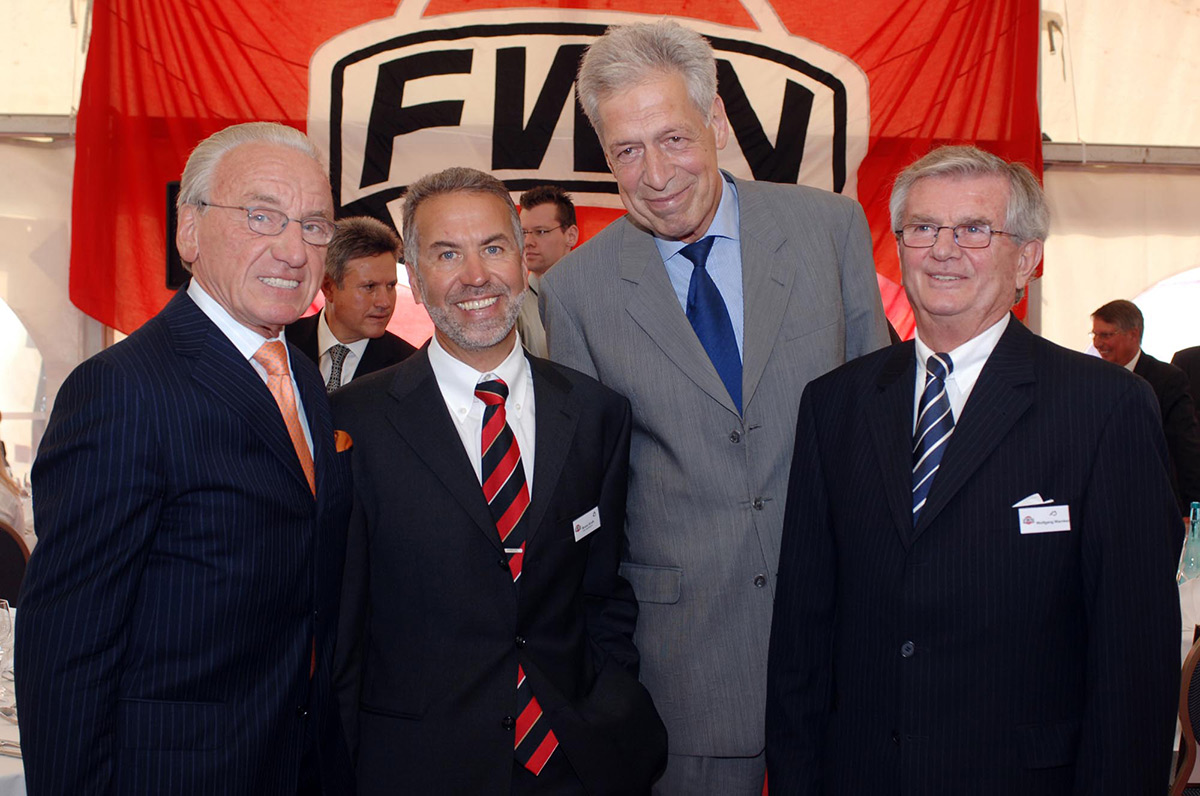
After the family-owned company was hived off from the insolvent Bohne Group in 1974, it paved the way for reorganisation. As from then, F.W. Neukirch traded as a limited partnership with a limited liability company as general partner (GmbH & Co. KG) and in 1977 relocated to its current spacious premises on Mahndorf industrial estate.
This was a difficult time for both the general population and for businesses. Many employees were called up for military service and most of the vehicles were requisitioned by the Nazis for the war effort. Like nearly all of the German economy, the company became a tool of the Nazi regime. As a member of the Bohne Group, Neukirch was also an official carrier for the German railways, and was thus obliged to perform certain transports in this sector. Although Neukirch, too, transported Jewish property on behalf of the Nazi regime, the company also carried property at the request of many Jewish citizens, helping them to emigrate to other countries. Old photos show that it helped many Jewish citizens relocate to North and South America. The warehouses and company premises near the railway station in Bremen were severely damaged during Allied air raids and by the end of World War II, like the rest of the German economy, the company’s business activities had more or less come to a standstill.
A period of post-war reconstruction began in the years after 1946. The Allies took away the remaining vehicles and cranes that still functioned at Neukirch. But the economy gradually began to recover with the help of the Allies and Neukirch was soon back in business. It purchased new trucks, rebuilt the warehouses and stocked them with goods, and also resumed its heavy goods transports, furniture transport and storage, official carriage for the railway and the sea freight business once again. In addition to rail freight transport, road haulage became increasingly attractive in the years after World War II. As more and more cargo shifted from rail to road, the company needed more operating space than was available on its premises near the railway station. The company fleet continued to grow and acquired a comprehensive range of furniture removal trucks, diverse specialist vehicles for handling heavy loads and general cargo trucks, which were operated in conjunction with the Bohne Group. This soon led to an upturn in the company’s fortunes.
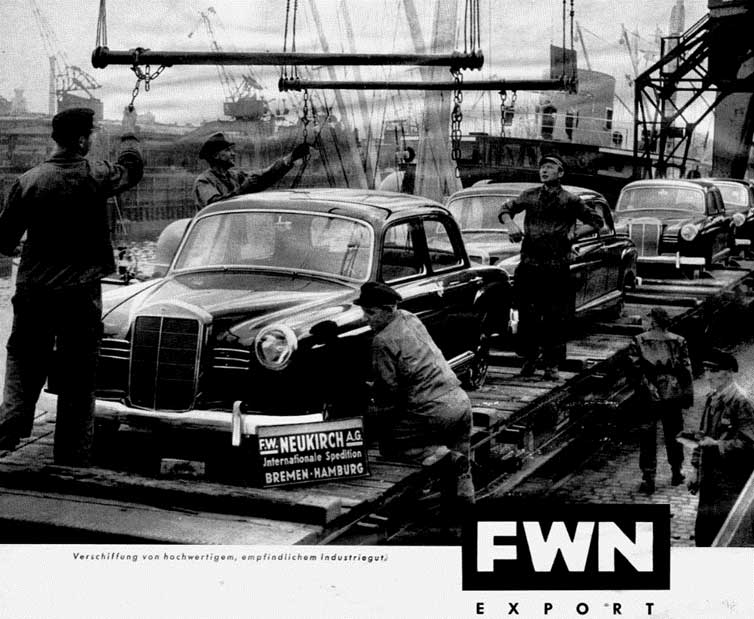
In 1974 Friedrich Bohne AG, the parent company of Neukirch AG, filed a petition in bankruptcy owing to an unsecured expansion policy and the successful Neukirch company threatened to go under as a consequence. Within a few days, however, clever investors – the present partners in our company – succeeded in extracting Neukirch from the bankruptcy estate and furnishing it with sufficient capital to start up again, so that it could continue its business activities without any changes.
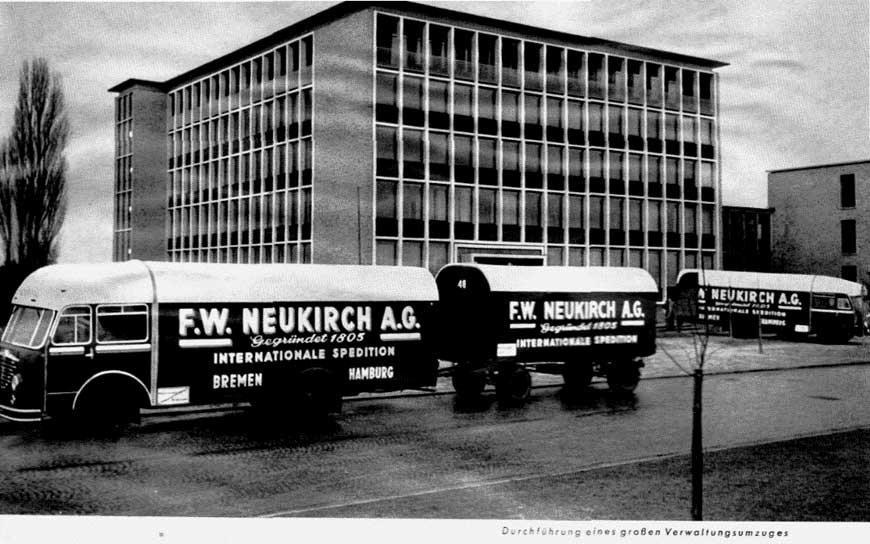
After the First World War, the company became a joint stock company. In the mid-1930s, it was taken over by the Bohne Group. The haulage company was already fully motorised by 1938.
The transport of furniture and heavy loads boomed and the haulage company experienced its heyday in the 1890s. F.W. Neukirch was appointed official freight carrier by the German Railways. The haulage company also entered the sea freight business. In 1901, Neukirch had a workforce of 258 employees, operated 20 trucks and already offered a complete range of services.
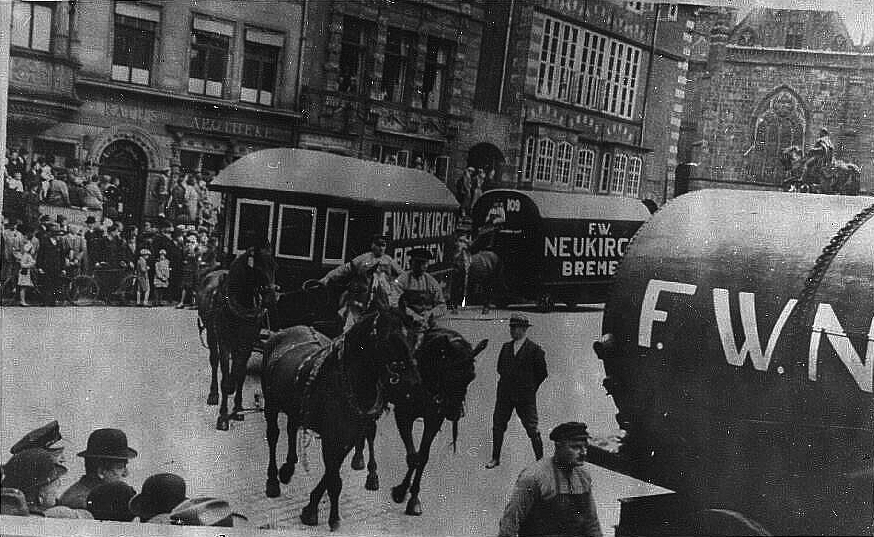
Around 1830, Neukirch’s son Fritz took over the running of the family-owned business, which focussed on the transport of furniture and heavy loads as well as property management. In line with the technical development of the railways, Fritz Neukirch was a successful carrier, handling transports for customers such as Norddeutsche Lloyd.
In 1822 Friedrich and his brother, Wilhelm, were Bremen’s largest hauliers. In the mid-19th century they were already delivering to destinations all over Germany. There were up to 100 horses under the company roof, which was now also located in Findorfstrasse. The company also had its own blacksmith’s, wheelwright’s and paint shop as well as a number of warehouses.
One horse, one cart: many success stories in this area, which we now call logistics, started this way. Friedrich Neukirch entered this field of business in 1805. The young man from Hunteburg (near Osnabruck), laid the foundation stone in Falkenstrasse, Bremen for a company which celebrated 200 years in business on 9 September 2005.
